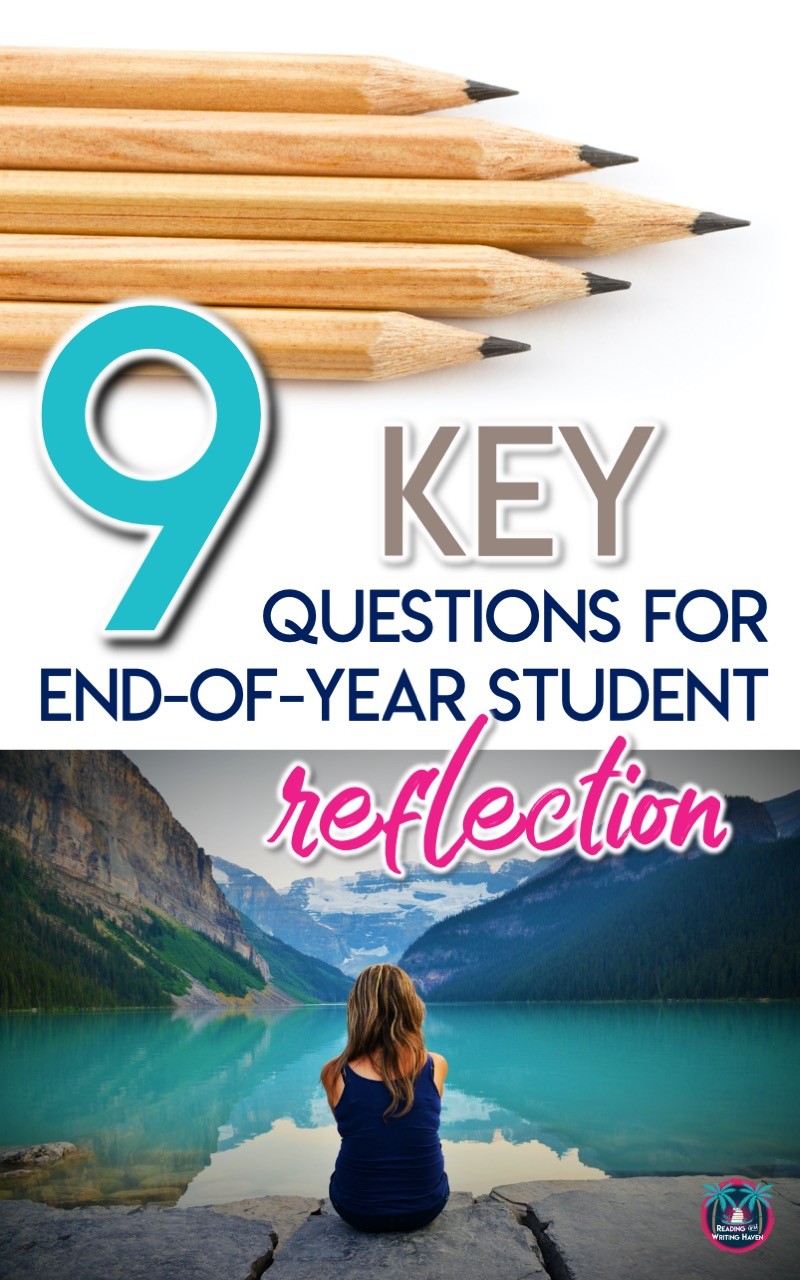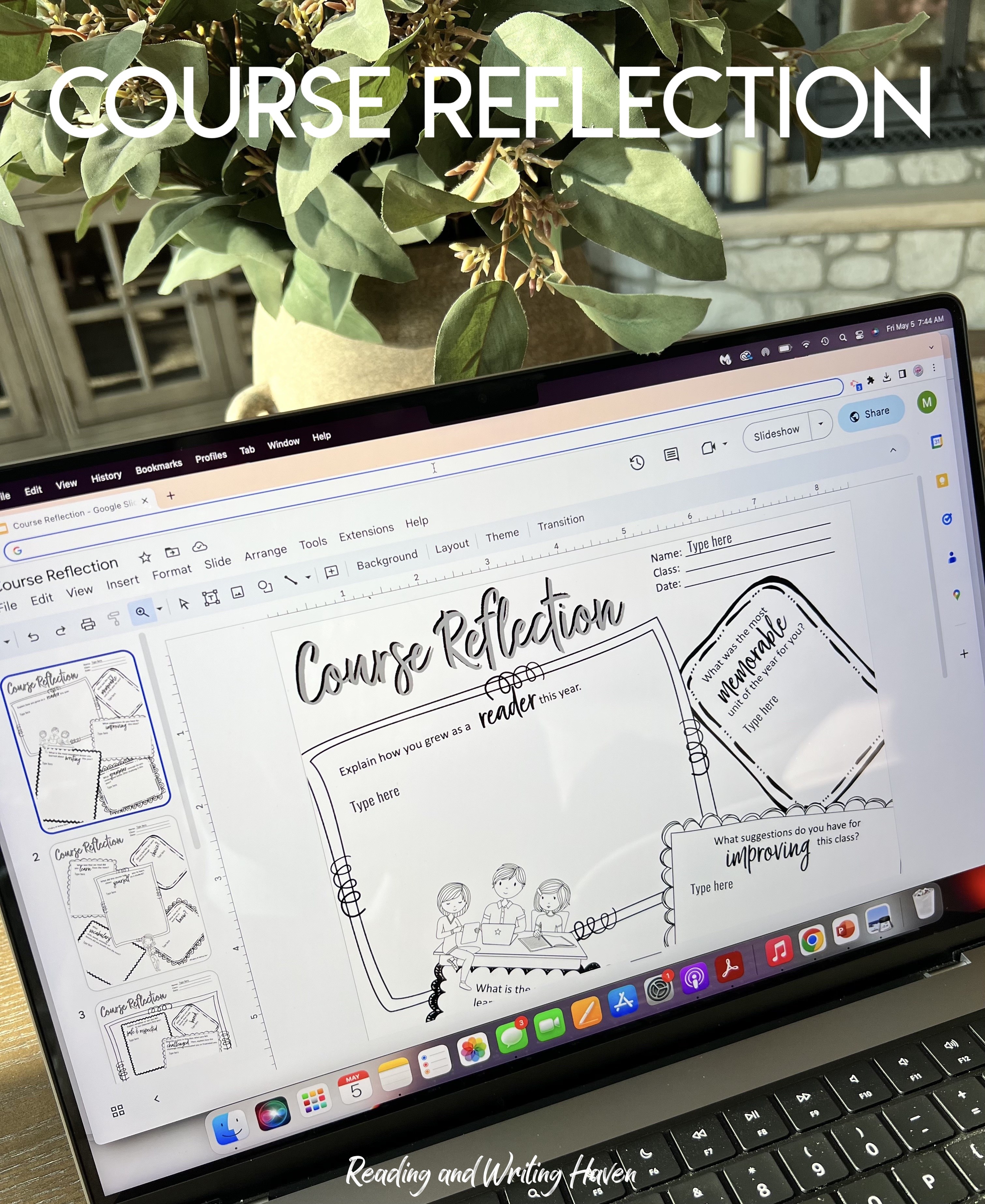9 Important Student Reflection Questions for the End of the Year
It’s the end of the school year, and you’re tired. Not to worry! This post will save you time. Use these student reflection questions to spark critical thinking about learning and growth.
As we near the end of the school year, we face a tough paradox. Teachers and students, in general, are done. In the extended wake of a global pandemic, our resilience has been challenged. Distance learning, hybrid learning, remote learning, in person learning – we’ve done it all in the past few years. Surely, the roller coaster we’ve experienced and our attempt to “return to normal” provides us with some critical reflection opportunities.
WHY REFLECTION QUESTIONS?
If we’re only using our own experiences to reflect, we’re missing out on hearing students’ voices. What has their experience been like? We can’t just assume to know.
While we don’t always want to ask for feedback — it can be scary to put ourselves in that place of vulnerability — it’s important that we do. Students often provide some of the most insightful observation we need to grow as educators.
But, the type of feedback we receive depends on the questions we ask. In this post, you’ll find some important student reflection questions for learning.
In teacher circles, I’ve noticed some common topics of conversation. These conversations helped me to generate a list of questions I’m recommending we ask students. And, I hope by sharing this list here, it will help other teachers create targeted questions to get valuable feedback from students. After all, if we come out of this year with new ideas for improving teaching and learning, that’s a win.
The questions that follow are perfect for the end of a course – semester or entire year. They’re crafted in a way that you can simply change the wording to adapt them to your setting.
THOUGHT-PROVOKING STUDENT REFLECTION QUESTIONS
- What (insert subject area) assignments helped you learn the best / most this year?
- How did you know you were learning?
- Which (insert subject area) concepts and skills do you feel the most confident with now?
- What type of (insert subject area) assignments were the most thought-provoking for you?
- Identify your effort level for this class.
- What type of feedback was the most motivating to you over the year?
- How much time did you spend on (insert subject area) work each day, approximately?
- How did you grow as a (insert subject area) student during this time? (Think about what you learned about yourself – your skills, your study habits, your knowledge, your mindset, etc.)
- How does what you learned this year connect with other content areas and with real life?
TIPS FOR MAKING REFLECTION QUESTIONS WORK
In order to get the type of feedback we need to improve our craft moving forward, we need to think carefully about how we are posing these questions. Instead of Did you enjoy learning in this class?, we need to create questions that reduce the likelihood that students will use the question as an outlet to vent. When creating questions, I’m always trying to anticipate possible responses and set students up for providing the most helpful feedback.
If you decide to use reflection questions with students, I recommend giving them some answer choices. (It will help students stay focused.) For instance, when asking them about what type of feedback was the most motivating, include a list. Google Forms makes it simple!
WHAT ABOUT MORE SPECIFIC QUESTIONS?
At the end of a semester or school year, I’ve always asked my students specific reflection questions about ELA concepts – reading, writing, and so on. Their answers always motivate me. I look forward to reading them – both the good and the bad. We can still ask students to talk about how they grew as readers and writers…about what books they enjoyed most or what writing skills they feel more confident with now. But, we also need to prioritize asking them about learning overall.
Keep in mind, students’ feedback is NOT always helpful! Once you begin reading through the results, create a set of filtering questions to help you process the information. For example:
- Is the feedback specific enough to be helpful? (If not, don’t give it another thought.)
- If constructive, is there any truth to this feedback that is worth considering?
- What do I want to write down to remember for next year?
- What affirmations did I receive that confirm I’m on the right track?
I hope these questions help you collect meaningful thoughts about your course from students! I’ve always found reading their comments to be a mixture of joy (it’s so rewarding to know what’s going well) and frustration (sometimes criticism comes in blatant tones). Separate the wheat from the chaff, and take what you need to move forward confidently.



For the past several days, we have used these questions in place of our morning Bellringer. The responses from the students have been amazing, and I have definitely been pleasantly surprised by their answers. Thanks for sharing!